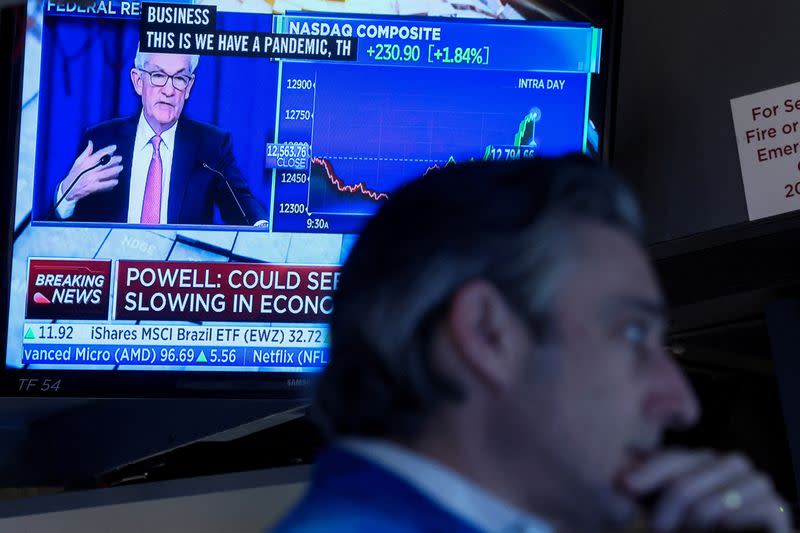In This Article:
By David Randall
NEW YORK (Reuters) - Concerns about a possible U.S. recession are prompting some fund managers to rotate back into the big tech and growth winners of the last decade in the hope that they can better weather an economic storm.
Many stalwarts like Microsoft Corp, Apple and Google-parent Alphabet Inc have suffered declines on par with or exceeding those in broader stock indexes this year, as jumbo rate hikes delivered by an inflation-fighting Federal Reserve hit the tech and growth names that led markets in previous years.
Since growth companies tend to be less affected by the broader economy’s performance, however, some investors believe the category’s most profitable names may outperform the rest of the market if the Fed’s hawkish policy stance drags the U.S. into recession.
"You are starting to see some cracks in economic growth, which will help select companies that are very well positioned in the technology space," said Saira Malik, chief investment officer at Nuveen, who has been increasing her positions in companies including Amazon.com Inc and Salesforce.com Inc.
"The conceptual companies that don't have profitability will continue to be challenged because you need real fundamentals to back it up," she said.
The trade is still a nascent one. Global fund managers have increased their allocations to tech by approximately seven basis points as measured by the latest survey from BofA Global Research, although they remain bearish on the sector as a whole.
Retail investors, meanwhile, have been buying "evergreen large tech companies" such as Apple Inc on recent market dips, according to Vanda Research.
Overall, the Russell 1000 Growth index is down 28.4% year-to-date, well behind the 13.9% decline for the Russell 1000 Value index, which contains stocks in more economically-sensitive sectors like energy. The benchmark S&P 500 index is down 20.7%, marking its worst first-half of the year since 1970.
Some names in tech have suffered even steeper losses: Cathie Wood’s ARK Innovation ETF, which holds an array of newer companies including Zoom Video Communications and Teladoc, is down 57.7% year-to-date.
Meanwhile, recession worries have grown in recent weeks. A global poll of investors by Deutsche Bank in June found that 90% now expect a U.S. recession by the end of 2023, up from 78% the month before.
'ATTRACTIVE VALUATIONS'
For Jack Janasiewicz, lead portfolio strategist at Natixis Investment Managers Solutions, those concerns are a good reason to increase positions in companies such as Google-parent Alphabet. Janasiewicz is also betting that the pounding their shares have taken has lowered valuations to attractive levels.


